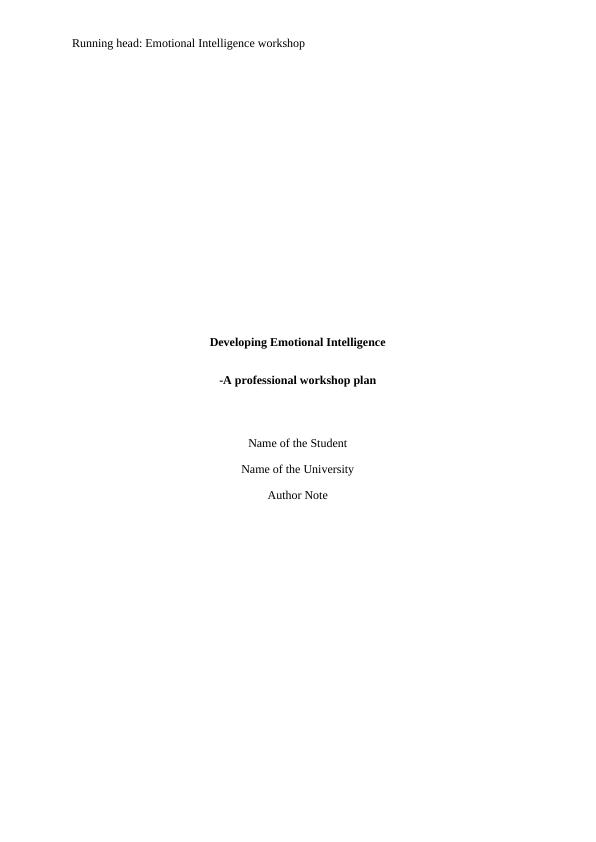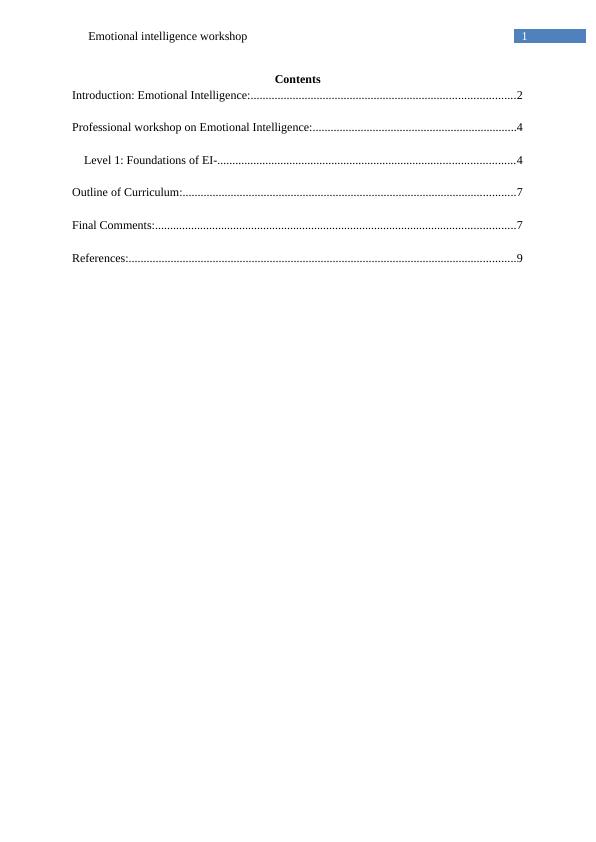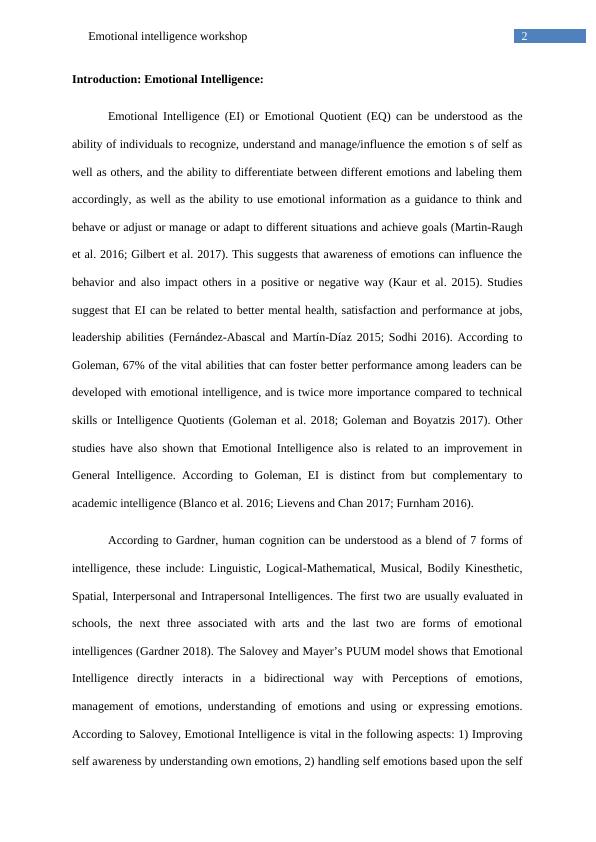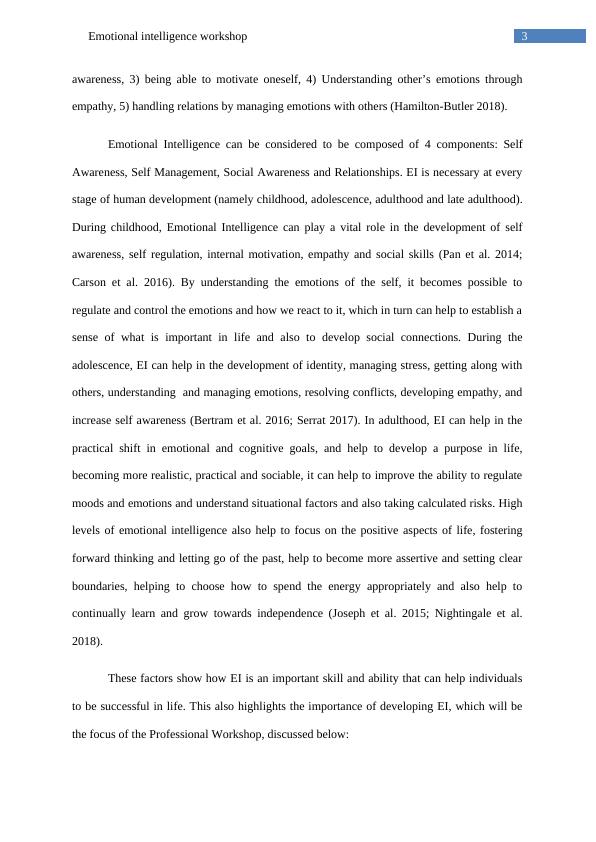Developing Emotional Intelligence - A Professional Workshop Plan
This individual evaluative summary report requires students to demonstrate a comprehensive understanding of Learning Outcomes 1 to 5 covering topics between Weeks 1 to12. The assignment involves designing a Professional Development Workshop on one of the Topics discussed in Class Weeks 1 to 12.
12 Pages3109 Words83 Views
Added on 2023-06-14
About This Document
This professional workshop plan focuses on developing emotional intelligence among individuals in different professions such as education, counseling/therapy or clinical assessment, organizational coaching and consultation and in management or leadership. The workshop is divided into three levels based on the levels of expertise developed in EI. The level 1 is the introductory level where the basics and foundations on EI will be taught. In level 2, advanced skills in EI will be developed, which will introduce the participants to the various tools and evaluation strategies for EI through lab sessions and training sessions. In level 3, expert level skill in EI will be developed, which will foster personal development, research skills and expert knowledge on EI.
Developing Emotional Intelligence - A Professional Workshop Plan
This individual evaluative summary report requires students to demonstrate a comprehensive understanding of Learning Outcomes 1 to 5 covering topics between Weeks 1 to12. The assignment involves designing a Professional Development Workshop on one of the Topics discussed in Class Weeks 1 to 12.
Added on 2023-06-14
ShareRelated Documents
End of preview
Want to access all the pages? Upload your documents or become a member.
Emotional Intelligence: Critical Analysis of Five Articles
|18
|4049
|30
Developing Emotional Intelligence Skills for the Workplace
|25
|7322
|147
Emotional Intelligence- Assignment
|6
|1008
|134
Emotional Intelligence
|5
|945
|100
Leadership and Organizations for the New Millennium
|22
|7695
|223
BSBLDR511 Develop and Use Emotional Intelligence
|35
|6178
|66




